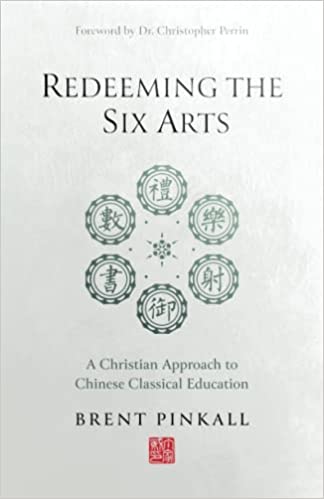Redeeming the Six Arts: A Christian Approach to Chinese Classical Education
Christ does not erase our cultural identities. He redeems them.
As Classical Christian Education experiences a renewal in the West, more and more Chinese Christians are eager to participate in it—but they face a dilemma. Contemporary resources on classical Christian education almost unanimously define it as a Western tradition rooted in Western languages, Western literature, and the seven liberal arts. Does this mean that Chinese classical Christian schools must also adopt a Western curriculum? Or might they draw from their own Eastern tradition, one characterized not by men such as Plato, Herodotus, and Shakespeare but by Confucius, Sima Qian, and Li Bai?
In Redeeming the Six Arts, Brent Pinkall argues that classical Christian education is not fundamentally a canon of fixed texts or subjects but rather an approach rooted in the Fifth Commandment: Honor thy father and thy mother. Insofar as our ancestors differ, the languages, literature, and arts we study will also differ. Although Chinese Christians share the same “spiritual” fathers as their Western counterparts, their “earthly” fathers are different, and therefore their curriculum must reflect not only a shared “Christian” heritage but also a unique “classical” heritage.
In Part 1, Pinkall surveys the 4000-year history of Chinese classical education, a tradition rooted in the “six arts”: rites, music, charioteering, archery, script, and calculation. In Part 2, he explores the common grace of God in this rich but pagan tradition and considers how Chinese Christians might redeem it to his glory while avoiding attendant pitfalls, just as the church in the West redeemed the “seven arts” tradition inherited from their pagan, Greco-Roman ancestors. As readers compare the two traditions, they will find both glorious distinctives as well as remarkable similarities. They will discover that God reveals himself not only through the Logos but through the Dao.
More info →


